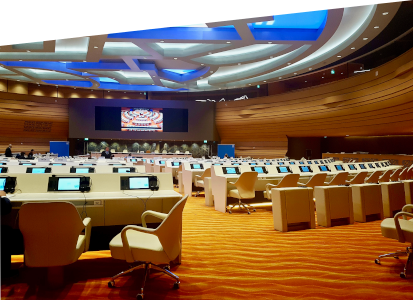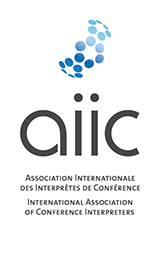Interpreter or Translator?
Both interpreters and translators facilitate communication between speakers of different languages, by making content in one language accessible to people who speak another language.
But while translators work with written text, converting documents from one language into another, interpreters work with the spoken word, conveying the meaning of a speaker’s message orally and in another language to listeners who would not otherwise understand it.
Conference interpreters usually work on-site at events, conferences and meetings, providing live translation of participants’ presentations, statements and conversations. They often work in teams, sitting in soundproof booths, but you may also have seen them whispering in the ears of business executives, celebrities, diplomats and heads of state.
Working with interpreters enables people to speak their mother tongue, and therefore to express themselves with confidence, precision and flair. When negotiating a business deal or debating the finer points of medical research, speakers are able to say exactly what they want to say, confident that a professional conference interpreter will provide an accurate and complete translation for their listeners.


Conference interpreting is a highly skilled professional service, requiring specialised training and qualifications. The content may be technical or medical, or a very nuanced political message: interpreters prepare the topic of each assignment thoroughly so that they can deal with every eventuality.
AIIC interpreters have made a commitment to quality and professionalism. They are bound by AIIC’s Code of Professional Ethics and undertake to observe the strictest professional secrecy.
